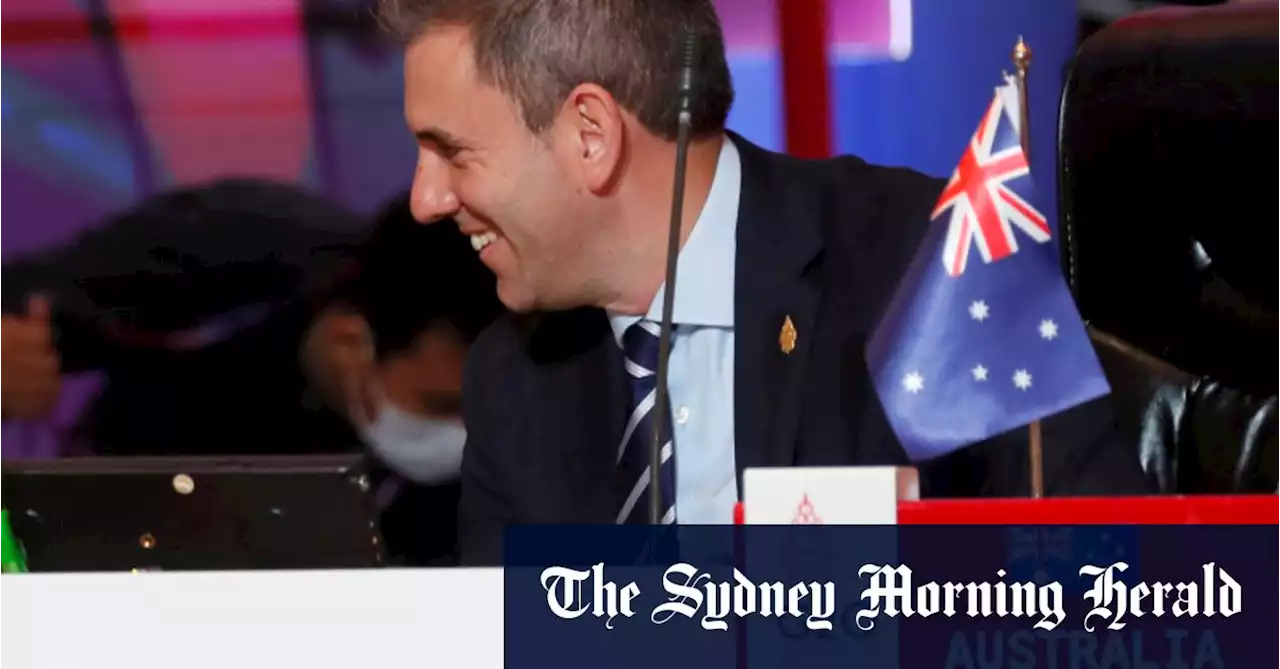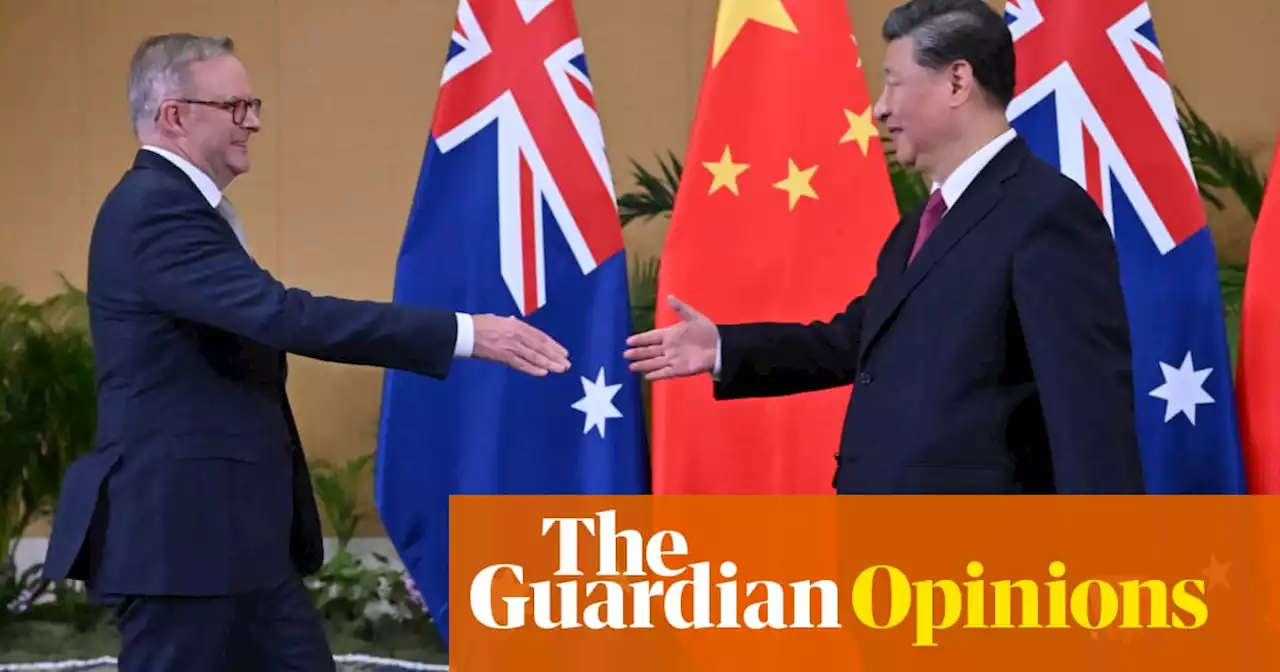Anthony Albanese and Xi Jinping’s meeting comes in a world where the geopolitical dynamics have changed too much for a ‘reset’ to occur
In his opening remarks Albanese acknowledged the differences that have challenged both sides but also indicated that Australia won’t be abandoning core policies and principles. He said both sides had worked to “stabilise the relationship” ahead of the 50th anniversary of diplomatic relations between Australia and China. Interestingly, Albanese again brought up the anniversary in his press conference after the meeting.
. Much has happened in the last six years since the leaders of the two countries last met, and the geopolitical dynamics of the region – and the world – have changed too much for a “reset” to occur. Furthermore, an influential segment of Australia’s foreign policy and national security institutions has fundamentally reshaped how
is seen by the political class and the Australian public. That is, China is viewed through the lens of national security threat, and that perception is difficult to undo. While this isn’t aand we would not want it to be so, Australian policymakers and the public ought to think about the relationship and take it as a starting point from which each country can move forward.
Australia’s foreign minister, Penny Wong, has tried to emphasise that Australia’s foreign policy is articulated and prosecuted along the lines of shared interests rather than values, distinct and separate from the US, as reflected in its recent. If China continues to see Australia as being the same as the US, such a misunderstanding will only hamper any future progress.
Beyond trade blockages, future progress in Australia-China relations will only be made when each side can identify shared interests. The challenge is whether there are enough shared interests that are immediately tangible to push beyond the mantra of “Dr. Jennifer Y.J. Hsu is a research fellow and the project director of the multiculturalism, identity and influence project at the Lowy Institute
Singapore Latest News, Singapore Headlines
Similar News:You can also read news stories similar to this one that we have collected from other news sources.
 Australia trying to ‘outbid’ China on supporting an ‘anti-democratic leader’Strategic Analysis Australia’s Michael Shoebridge says Australia is on the “wrong track” with the Solomon Islands and the South Pacific. “With the Solomons in particular we’ve got in the embarrassing situation of trying to outbid Beijing on who can support an anti-democratic leader called Mr Sogavare,” he told Sky News host Andrew Bolt. “We need to stop trying to compete to be his security partner of choice. “We could really use South Pacific workers in our economy and they could really use that kind of employment instead of aid.”
Australia trying to ‘outbid’ China on supporting an ‘anti-democratic leader’Strategic Analysis Australia’s Michael Shoebridge says Australia is on the “wrong track” with the Solomon Islands and the South Pacific. “With the Solomons in particular we’ve got in the embarrassing situation of trying to outbid Beijing on who can support an anti-democratic leader called Mr Sogavare,” he told Sky News host Andrew Bolt. “We need to stop trying to compete to be his security partner of choice. “We could really use South Pacific workers in our economy and they could really use that kind of employment instead of aid.”
Read more »
 China ‘will meet Australia half way’ Premier Li Keqiang tells AlbaneseTreasurer Jim Chalmers has called for a “more stable” relationship between Australia and China ahead of a potential leaders’ meeting at the G20 summit that could ease years of tensions over regional security and trade sanctions. | CroweDM
China ‘will meet Australia half way’ Premier Li Keqiang tells AlbaneseTreasurer Jim Chalmers has called for a “more stable” relationship between Australia and China ahead of a potential leaders’ meeting at the G20 summit that could ease years of tensions over regional security and trade sanctions. | CroweDM
Read more »
 China ready to meet Australia 'half way'Following the East Asia Summit in Cambodia, Chinese Premier Li Keqiang said his country was ready to meet Australia 'half way' after he spoke with Prime Minister Anthony Albanese - who is set to meet with President Xi Jinping on Tuesday.
China ready to meet Australia 'half way'Following the East Asia Summit in Cambodia, Chinese Premier Li Keqiang said his country was ready to meet Australia 'half way' after he spoke with Prime Minister Anthony Albanese - who is set to meet with President Xi Jinping on Tuesday.
Read more »
 Chalmers calls for ‘more stable’ relationship between Australia and ChinaBut the treasurer says as part of a stabilising of the relationship, Australia would like to see some trade restrictions lifted.
Chalmers calls for ‘more stable’ relationship between Australia and ChinaBut the treasurer says as part of a stabilising of the relationship, Australia would like to see some trade restrictions lifted.
Read more »
 Australia must enter discussions with China ‘in good faith’Shadow Foreign Affairs Minister Simon Birmingham says Australia has to enter discussions with China “in good faith”. “You’ve also got to go in there with a firmness of position in terms of intent to raise the difficult issues to make sure that in raising those issues, you’re clear about the fact that Australia expects them to be dealt with,” Mr Birmingham told Sky News Australia. “We know we won’t always agree.”
Australia must enter discussions with China ‘in good faith’Shadow Foreign Affairs Minister Simon Birmingham says Australia has to enter discussions with China “in good faith”. “You’ve also got to go in there with a firmness of position in terms of intent to raise the difficult issues to make sure that in raising those issues, you’re clear about the fact that Australia expects them to be dealt with,” Mr Birmingham told Sky News Australia. “We know we won’t always agree.”
Read more »
